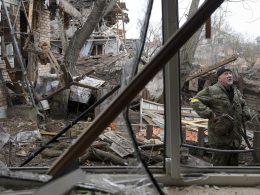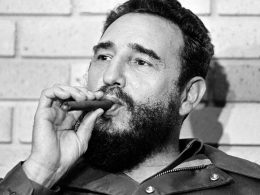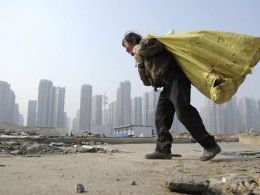Socialist Party MEP, Paul Murphy, is currently visiting Gaza as part of a delegation of parliamentarians, to see the conditions first hand. Paul will be keeping a diary of the events and reflections, and you can read them on his blog. Here we post his report from the first day there.
Day 1: Finally in Gaza!
On my third attempt, I have finally reached Gaza. My first attempt, during the summer, was thwarted by the Israeli sabotage of the Irish ship to Gaza and then the Greek extension of the Israeli siege. My second attempt came to an end just over a week ago, when I spent seven days in an Israeli prison after reaching 45 miles from the Gaza coast before the Freedom Waves flotilla was violently assaulted and boarded by Israeli soldiers. Having failed twice by sea, when the opportunity came to visit Gaza this week over land as part of a delegation of parliamentarians and NGOs organised by the Council for European Palestinian Relations, I had to seize it.
After leaving the Socialist Party Conference in Cavan on Sunday morning, I flew to Istanbul, before transferring to Cairo, arriving at around 2.30am. Driving in a taxi to the hotel listening to the radio news, even with no knowledge of Arabic beyond the word Tahrir, it was clear that something major was happening at Tahrir Square. It made me wish I could have visited the Square to show solidarity with the protestors, as at least one of our party did, but there was simply no time.
It was only late today that we received full news of what appears to be now a pattern of really brutal crackdowns by the military to clear out the Square and intimidate protestors, together with a response by protestors to re-occupy it. We have heard now that over 30 people have been killed by the military and over 1,000 have been injured.
I arrived at the hotel at 3.30am, and was only shortly to bed by the time my pre-arranged wake up call arrived – at 5am! After a quick breakfast, it was onto the coaches and we were en route to Gaza. The promised five hour bus journey to Rafah crossing turned out to be more like eight hours. A heavy Egyptian military presence was evident all the way up to Rafah. When we reached the Rafah crossing, another long wait began.
The participants, many of whom have participated in previous crossings, shared stories about the long waits and often denials that they experienced in the past in Rafah. Although the crossing has opened up somewhat now, since the revolution, it is still a very far from open border, and is extremely difficult for people to travel through. After a three hour wait, however, we got the all-clear and boarded the bus that would bring us across the border.
When we crossed the border into Gaza, a tiny strip of land that is an open-air prison camp for its 1.6 million inhabitants, it was an emotional moment. For many of the Palestinian participants in the delegation, this is the first time in a long time that they have been able to return home. We were met with a large welcoming committee from the Palestinian Legislative Council, as well as hordes of media filming us arriving.
After hand-shaking, welcomes and a quick press conference, we boarded the buses and drove to Gaza city. Unfortunately, the dark meant that it was very hard to get a proper sense of the place. After we made it to our hotel after dinner, however, I met up with an old friend who is now working with an NGO in Gaza. We went for a quick walk around the block and to a coffee shop.
In the ten minutes walk we went on around the area, the devastating effect of the regular Israeli bombings were clear. Row after row of big buildings are interrupted by an empty space and mound of rubble – another victim of “Operation Cast Lead” or a more recent bombing. The last month has seen an increase in very regular Israeli bombings in the middle of the night.
The other striking feature in this relatively affluent part of Gaza is the obvious poverty. What involuntarily came to mind was a debate I had at the time of the summer’s flotilla on Newstalk with an Israeli spokesperson. He had tried to claim that because of the economic crisis in Ireland, living standards were equivalent in Ireland and Gaza. What a blatant and bald-faced lie! My friend showed me one of the supermarkets that are pointed to by the Israeli regime as being evidence of the good living standards in Gaza – even this, supposedly luxurious supermarket, was basic enough. And it was clearly the exception to the rule!
Thankfully, there were no bombings last night and so after an uninterrupted sleep, I woke up to the view of a beautiful beach outside my bedroom window. You can easily see how instead of being a humanitarian disaster zone, this could be paradise. We have now set out on our bus to start our packed programme, which includes visiting a refugee camp and meeting with ‘civil society’ in Gaza.
Although the poverty and destruction is horrifying, I am delighted to finally be in Gaza and have the opportunity to see the place for myself. I am confident that my experiences here will enable me to campaign more effectively against the blockade of Gaza and the oppression of the Palestinian people.












